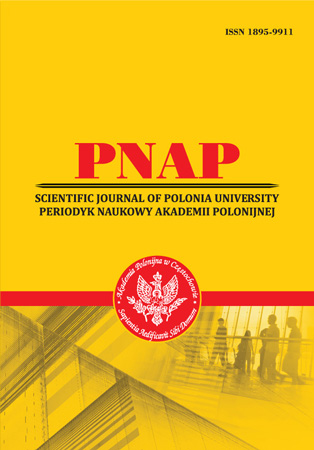FORMATION OF READING LITERACY OF PUPILS BY MEANS OF PHYSICS
Abstract
Based on the theoretical analysis, the concepts of reader literacy and reading competence are researched and formulated, and the structure of reader literacy is determined. The author considers the components of reading literacy, which are formed in the process of studying physics through the components of key competencies identified by the program. The most characteristic types of visual presentation of information in physics textbooks are also identified and its significance for the formation of both subject competence in physics and the experience of reading such information. The contribution of physics to the formation of developmental and activity components of reading competence is determined and certain generalizations and recommendations for enriching the experience of reading activities of various texts especially those containing graphs and tables are formulated. The author substantiates the hypothesis of increasing the level of reading literacy of main school students by formulating certain metacognitive reading strategies and generalized conclusions and recommendations when working with subject graphics.
References
2. Kovalenko, K.V. (2016) Formuvannia predmetnoi kompetentnosti uchniv osnovnoi shkoly u protsesi rozviazuvannia fizychnykh zadach hrafichnym metodom [Formation of subject competence main school pupils in the process of solving physical problems graphically]. Kyiv. [in Ukrainian]
3. Liashenko, O. I., Bariakhtar, V. H., Blahodarenko, L. Yu. Holovko, M. V., Horobets, Yu. I., Zasiekina, T. M., Liskovych, O. V., Martyniuk, M. T., Nenashev, I. Yu, Okhrymenko, N. A., Syrotiuk, V. D., Shut, M. I. (2017). Fizika. Navchalna programa dlya 7-9 klasiv ZNZ [Physics curriculum for grades 7-9 of secondary schools]. Kyiv. [in Ukrainian]
4. Leu, D. J., Kinzer, C. K., Coiro, J., Castek, J., & Henry, L. A. (2013). New literacies: A duallevel theory of the changing nature of literacy instruction and assessment. In D. E. Alvermann, N. J. Unrau, & R. B. Rudell (Eds.), Theoretical models and processes of reading (6th edition, pp. 1150–1181). Newark: International Reading Association.
5. Mazorchuk, M., Vakulenko, T., Tereshchenko, V., Bychko, H., Shumova, K., Rakov, S., Horokh, V. (2018). Natsionalnyi zvit za rezultatamy mizhnarodnoho doslidzhennia yakosti osvity PISA-2018 [National report on the results of the international survey on the quality of education PISA-2018].Kyiv: UTsOIaO. [in Ukrainian]
6. OECD. (2018). PISA 2018. Ramkovij dokument z gramotnosti chitannya [PISA 2018 Framework Document on reading literacy]. Pirson: mizhnarodnyj partner (Core B).[in Ukrainian]
7. OECD. (2018). PISA 2018 Ramkovyi dokument do opytuvalnyka [PISA 2018 framework document to the questionnaire]. Pirson: mizhnarodnyj partner (Core B). [in Ukrainian]
8. Orlova, E. A. (2008). Rekomendacii po povysheniyu urovnya razvitiya chitatelskoj kompetentnosti v ramkah Nacionalnoj programmy podderzhki i razvitiya chteniya: posobie dlya rabotnikov obrazovatelnyh uchrezhdenij [Recommendations for raising the level of development of reading competence in the framework of the National program of support and development of reading: a guide for employees of educational institutions]. Moskva. [in Russian]
9. Smetannikova, N. N. (2009). Kompetencii chteniya i kompetentnyj chitatel [Reading competencies and a competent reader]. Moskva:Nauka. [in Russian]
10. Savchenko, O. Ia. (2011). Kliuchovi kompetentnosti – innovatsiinyi rezultat shkilnoi osvity [Key competencies – an innovative result of school education]. Ridna shkola, № 8–9, 4–8. [in Ukrainian]
11. Taboada, A., Tonks, S. M., Wigfield, A., & Guthrie, J. T. (2013). Effects of motivational and cognitive variables on reading comprehension. Newark: [International Reading Association].
12. Ukrainskyi tsentr otsiniuvannia yakosti osvity (2019). Zvit pro rezultaty pershoho tsyklu zahalnoderzhavnoho monitorynhovoho doslidzhennia yakosti pochatkovoi osvity “Stan sformovanosti chytatskoi ta matematychnoi kompetentnostei vypusknykiv pochatkovoi shkoly zakladiv zahalnoi serednoi osvity” 2018 r. Chastyna III. Chytannia [Report on the results of the first cycle of the national monitoring study of the quality of primary education “The state of formation of reading and mathematical competencies of primary school graduates of general secondary education” in 2018, Part III. Reading]. Kyiv. [in Ukrainian]
13. Ukrainskyi tsentr vidkrytykh danykh (2015). Vidkrytyi posibnyk z vidkrytykh danykh [An open guide to open data]. Retrieved from https://socialdata.org.ua/manual0/
14. Waters, H. S., & Schneider, W. (2010). Metacognition, strategy use, and instruction. New York: Guilford Press.
15. Westhoff, G. (1997). Reading skills. Muenchen: Goelthe-Institut. [in Deutch].
Abstract views: 283 PDF Downloads: 196







